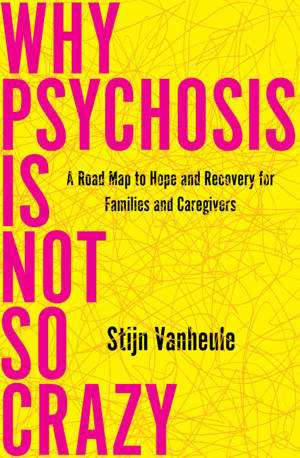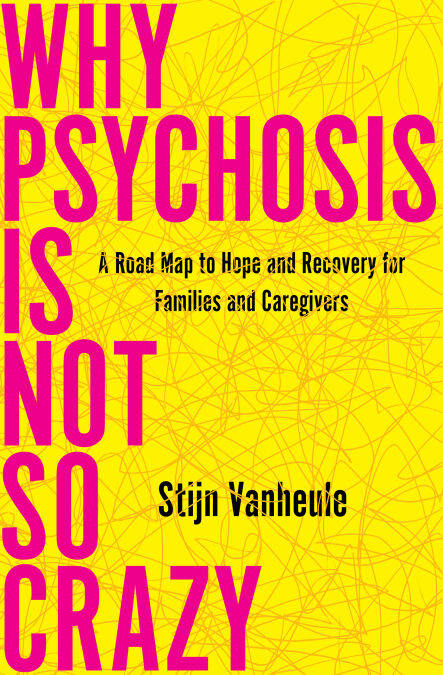
- Afhalen na 1 uur in een winkel met voorraad
- Gratis thuislevering in België vanaf € 30
- Ruim aanbod met 7 miljoen producten
- Afhalen na 1 uur in een winkel met voorraad
- Gratis thuislevering in België vanaf € 30
- Ruim aanbod met 7 miljoen producten
Zoeken
Why Psychosis Is Not So Crazy E-BOOK
A Road Map to Hope and Recovery for Families and Caregivers
Stijn Vanheule
E-book | Engels
€ 10,83
+ 10 punten
Uitvoering
Omschrijving
An expert’s guide to humanizing psychosis through communication offers key insights for family and friends to support loved ones during mental health crises.
Are we all a little crazy? Roughly 15 percent of the population will have a psychotic experience, in which they lose contact with reality. Yet we often struggle to understand and talk about psychosis. Interactions between people build on the stories they tell each other—stories about the past, about who they are or what they want. In psychosis we can no longer rely on these stories, this shared language. So how should we communicate with someone experiencing reality in a radically different way than we are?
Drawing on his work in psychoanalysis, Stijn Vanheule seeks to answer this question, which carries significant implications for mental health as a whole. With a combination of theory from Freud to Lacan, present-day research, and compelling examples from his own patients and well-known figures such as director David Lynch and artist Yayoi Kusama, he explores psychosis in an engaging way that can benefit those suffering from it as well as the people who care for and interact with them.
Are we all a little crazy? Roughly 15 percent of the population will have a psychotic experience, in which they lose contact with reality. Yet we often struggle to understand and talk about psychosis. Interactions between people build on the stories they tell each other—stories about the past, about who they are or what they want. In psychosis we can no longer rely on these stories, this shared language. So how should we communicate with someone experiencing reality in a radically different way than we are?
Drawing on his work in psychoanalysis, Stijn Vanheule seeks to answer this question, which carries significant implications for mental health as a whole. With a combination of theory from Freud to Lacan, present-day research, and compelling examples from his own patients and well-known figures such as director David Lynch and artist Yayoi Kusama, he explores psychosis in an engaging way that can benefit those suffering from it as well as the people who care for and interact with them.
Specificaties
Betrokkenen
- Auteur(s):
- Uitgeverij:
Inhoud
- Aantal bladzijden:
- 240
- Taal:
- Engels
Eigenschappen
- Productcode (EAN):
- 9781635424430
- Verschijningsdatum:
- 16/09/2024
- Uitvoering:
- E-book
- Beveiligd met:
- Adobe DRM
- Formaat:
- ePub

Alleen bij Standaard Boekhandel
+ 10 punten op je klantenkaart van Standaard Boekhandel
Beoordelingen
We publiceren alleen reviews die voldoen aan de voorwaarden voor reviews. Bekijk onze voorwaarden voor reviews.







